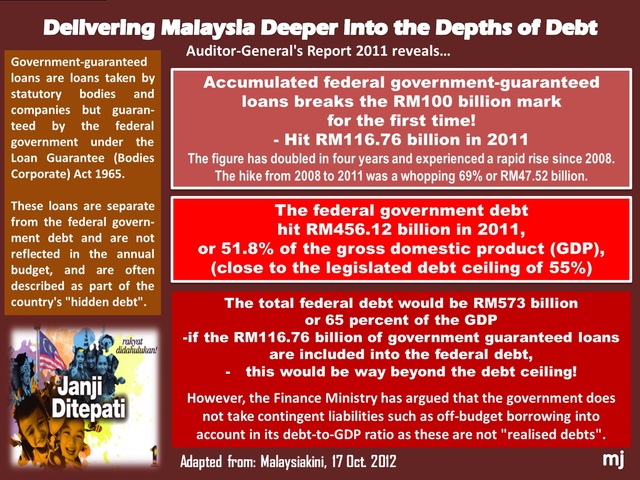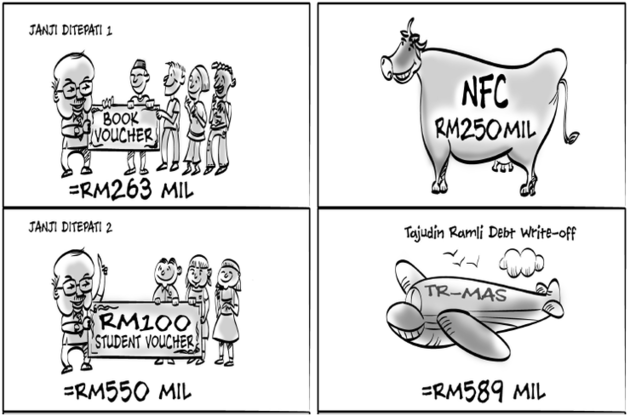By Pak Sako | Thursday, 21 February 2013 11:34
CPIASIA
Former prime minister Mahathir Mohamad claimed last week that Malaysia’s current debt level is “healthy” compared with Greece’s.
But the debt-to-GDP percentage Mahathir relied on tells next to nothing about the full extent of Malaysia’s debts; the nature of these debts; or what can happen next.
The real devil lies in the details, namely:
(i) the trend in the debt level.
How has it changed in the recent past? Is there momentum in a certain direction? The federal government’s debt had doubled in just four years from 2007 and 2012. Will it stop growing, or will the trend and absolute totals continue their upward rise?
In the last decade, our finance ministers have repeatedly pledged to reduce the budget deficits. This has not happened. Instead, deficits have ballooned and the federal government’s debt has mounted.
(ii) the causes of debt.
For what are the borrowings and for whom? Are these borrowings for worthwhile investments that benefit the public? Are these liabilities being used to cover government operating costs or to prop up failing crony companies or the stock market? Is the use of costly loans for projects with low or no rates of return justified?
Almost a trillion ringgit was recently whisked out of the country in the form of illegal outflows. This is capital flight. It is conclusive evidence that our economy is ‘leaking out’ wealth.
Continue reading “Investigate Malaysia’s debts now”


